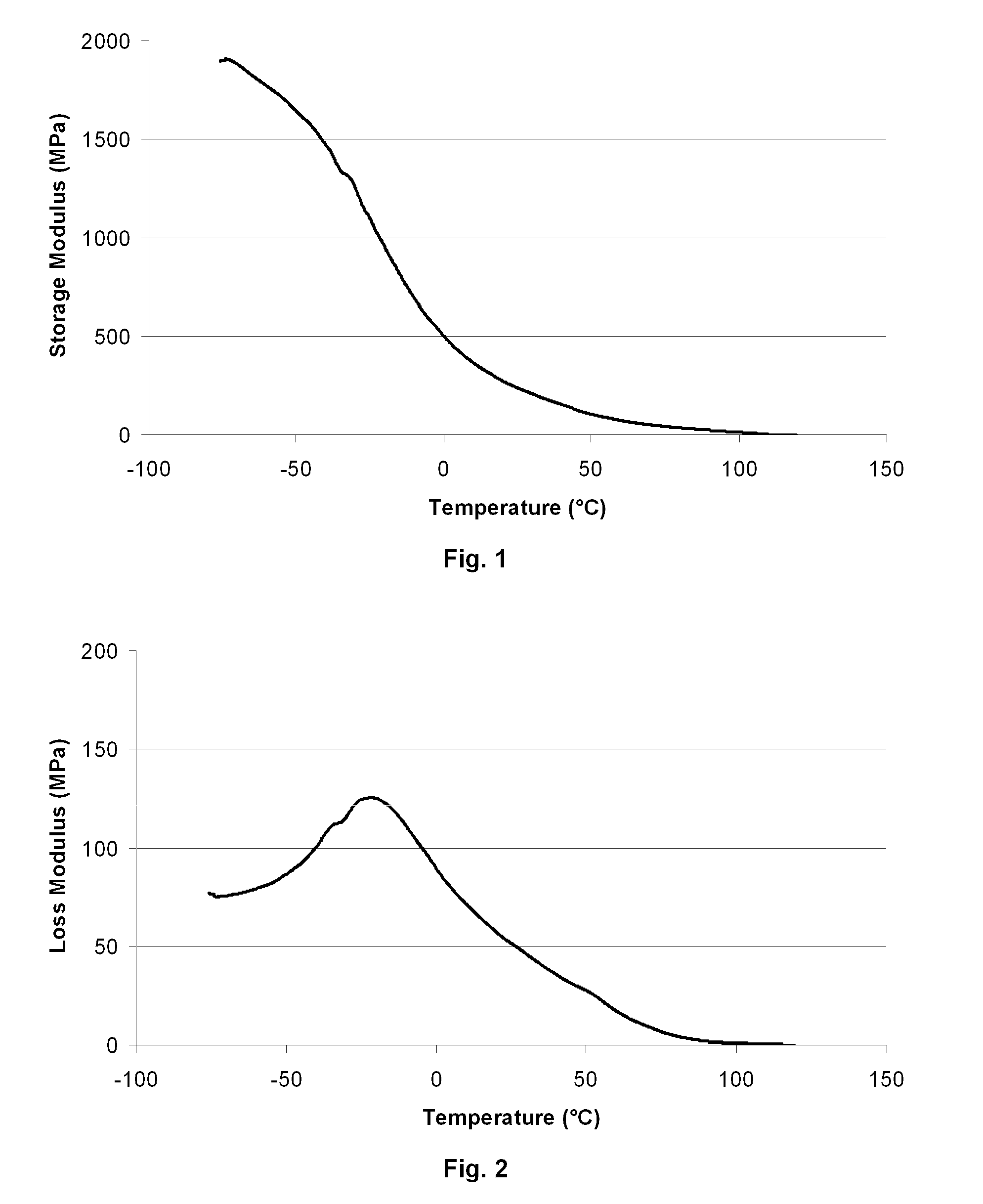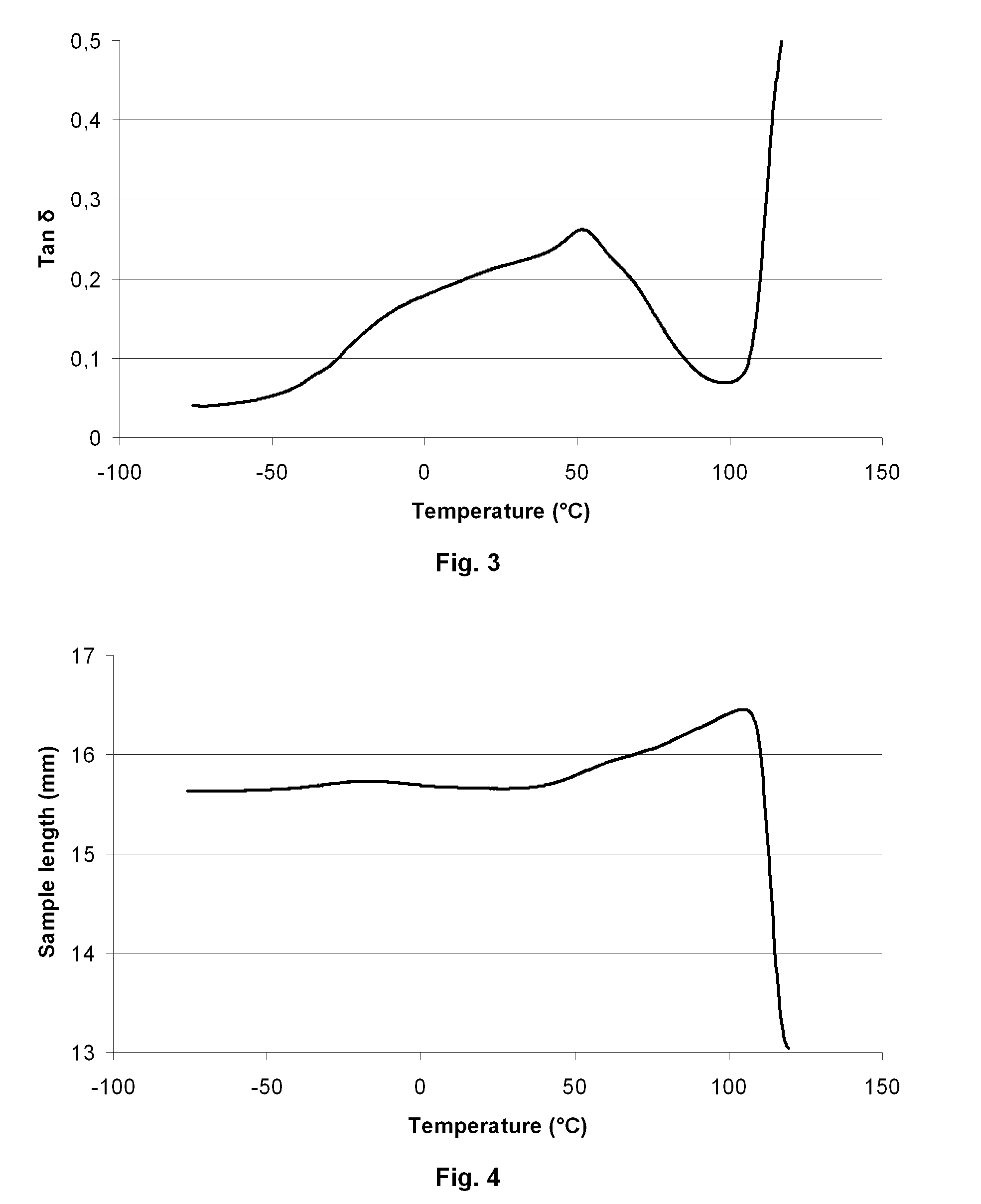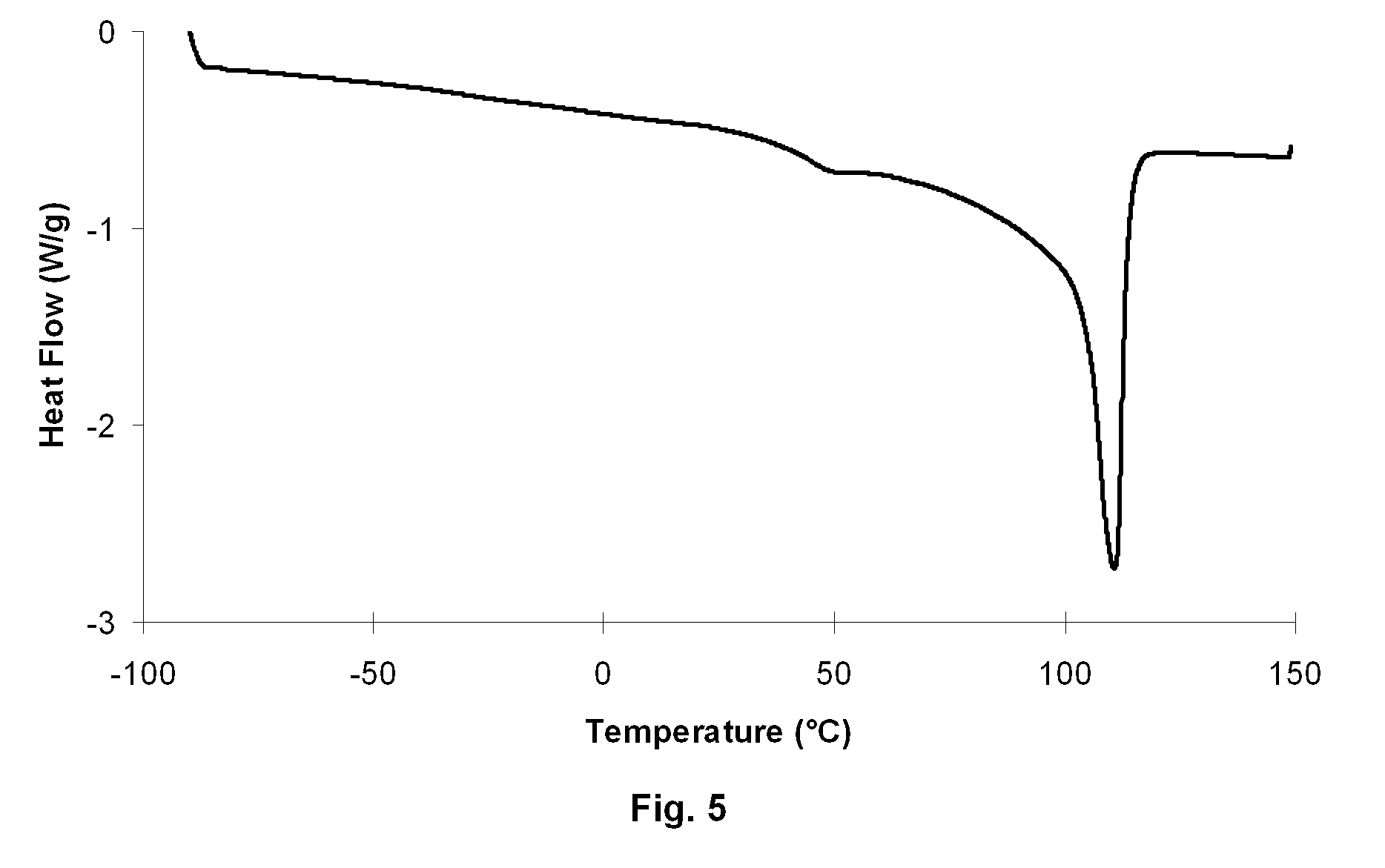Radiation curable inkjet printing methods
a technology of inkjet printing and curable ink, which is applied in the direction of printing, ink, duplication/marking methods, etc., can solve the problems of flexography becoming less economical printing process for plastic bags, adhesion problems, and flexography printing speed being lower than flexography, so as to achieve economic and versatile effects
- Summary
- Abstract
- Description
- Claims
- Application Information
AI Technical Summary
Benefits of technology
Problems solved by technology
Method used
Image
Examples
example 1
[0206]This example illustrates the improvement of adhesion of a radiation curable inkjet ink to a substrate typically used for making plastic bags in a temperature working area that normally would not be considered by a skilled person in inkjet printing.
DMA and DSC on the Plastic Bag Substrate
[0207]A dynamic mechanic analysis was performed on LDPE foil according to the method described above. The results are shown in FIG. 1 to 4.
[0208]In FIG. 1 it can be seen that the storage modulus at −80° C. is about 1900 MPa (stiffness about 59500 N / m). By increasing the temperature the mechanical strength of the LDPE foil decreases sharply to about 200 Mpa at room temperature (stiffness 6500 N / m) and to only about 14 MPa at 100° C. In FIG. 2 the loss modulus peaks at about −22° C., this corresponds with the glass transition temperature (Tg). The calculated curve of Tan δ in FIG. 3 increases from −80° C. to a maximum value around a temperature of about 51° C., then decreasing again until 100° C....
example 2
[0213]This example illustrates a practical implementation of the invention on a single pass inkjet printer.
Single Pass Inkjet Ink Printer
[0214]A :Dotrix modular single pass inkjet printer from AGFA GRAPHICS was modified to accommodate for transport of a thin web (75μm) of polyethylene foil. These modifications included different positioning of dancer rolls, use of spreader rolls, use of lower friction bearings, . . . . All these modification are well-known for a skilled person in printing presses for flexographic printing on webs of thin flexible foils.
[0215]In addition the curing device of the :Dotrix modular single pass inkjet printer was adapted. A shutter having a dichroitic reflector was installed, whereby the peak intensity onto the substrate was increased. The standard curing lamp of the printer was replaced by a thinner mercury arc lamp of smaller electrical power, thus creating less heat and also allowing higher focussing, whereby again a higher power was obtained in functi...
PUM
| Property | Measurement | Unit |
|---|---|---|
| Temperature | aaaaa | aaaaa |
| Temperature | aaaaa | aaaaa |
| Temperature | aaaaa | aaaaa |
Abstract
Description
Claims
Application Information
 Login to View More
Login to View More - R&D
- Intellectual Property
- Life Sciences
- Materials
- Tech Scout
- Unparalleled Data Quality
- Higher Quality Content
- 60% Fewer Hallucinations
Browse by: Latest US Patents, China's latest patents, Technical Efficacy Thesaurus, Application Domain, Technology Topic, Popular Technical Reports.
© 2025 PatSnap. All rights reserved.Legal|Privacy policy|Modern Slavery Act Transparency Statement|Sitemap|About US| Contact US: help@patsnap.com



